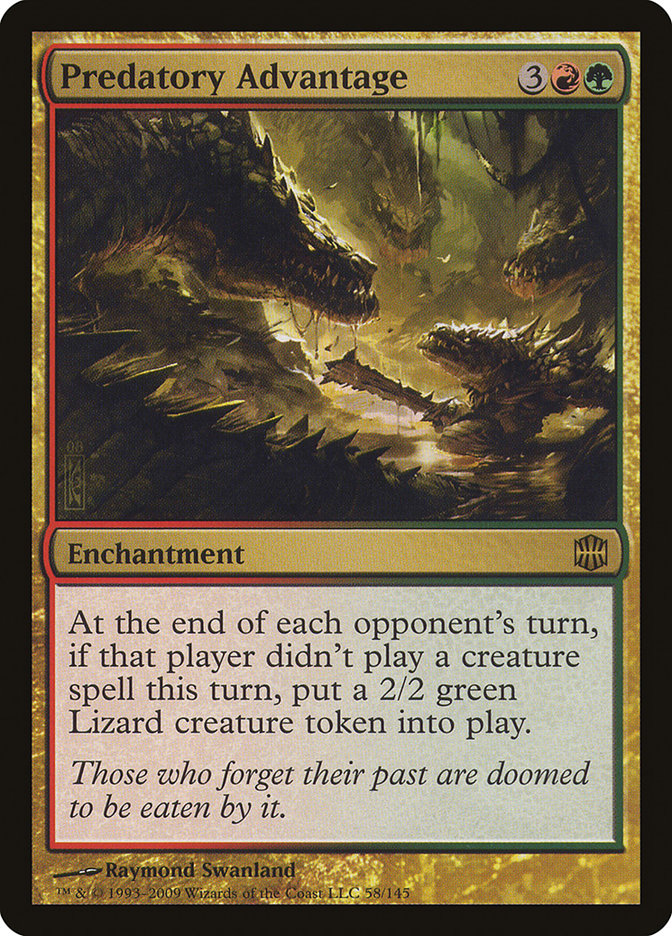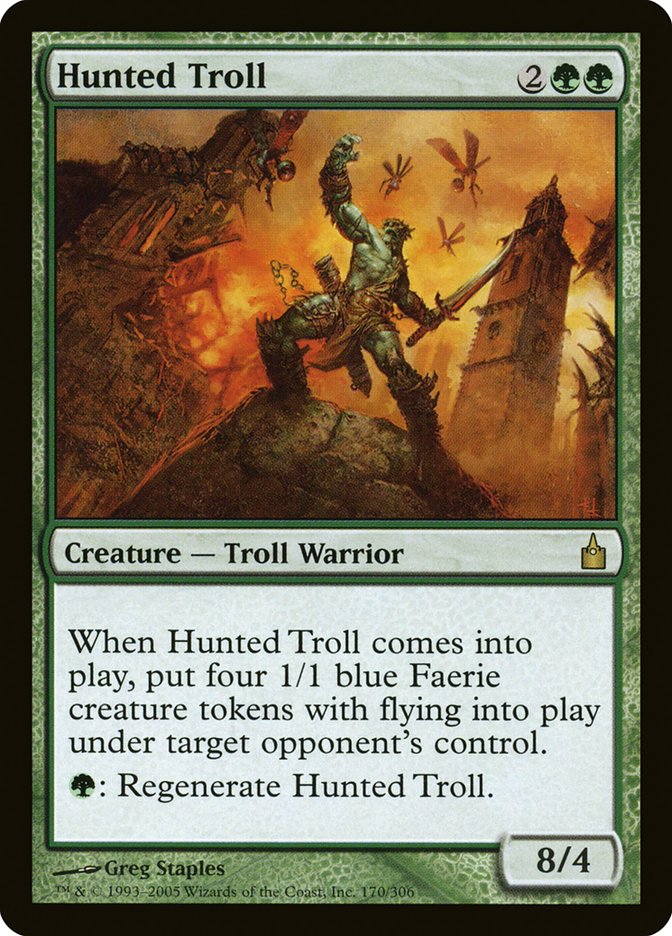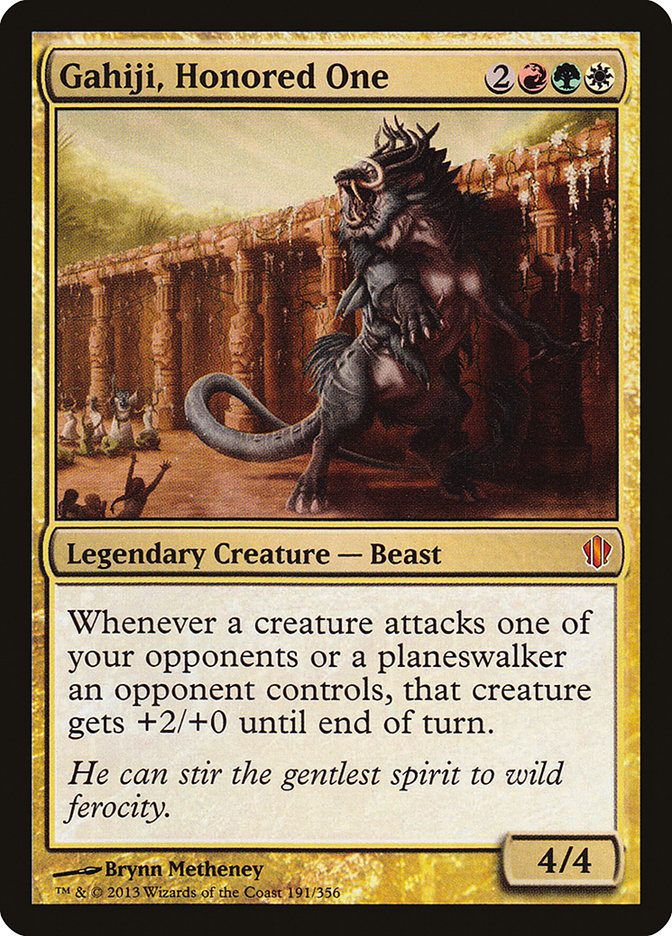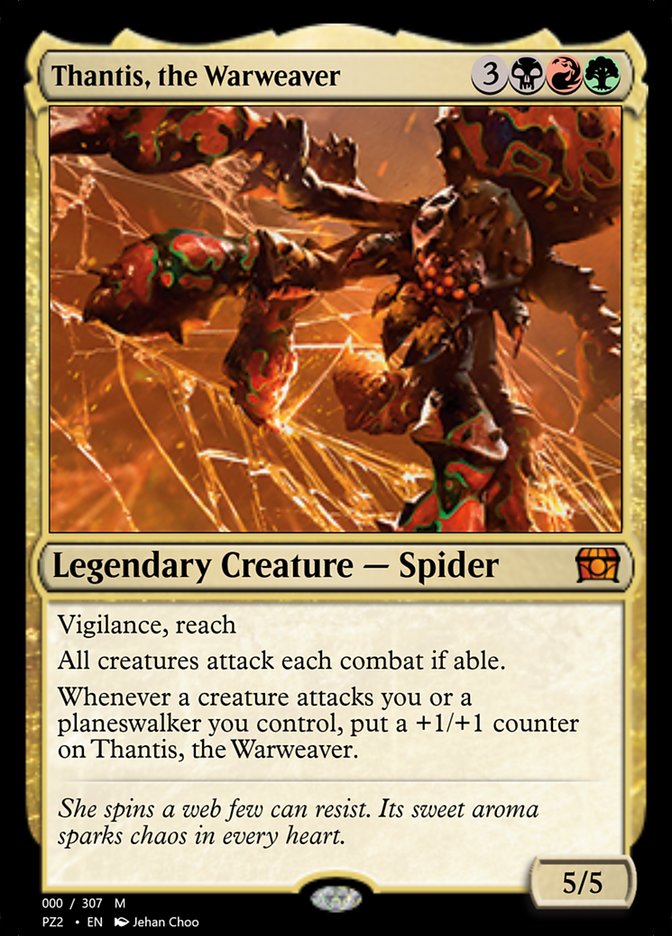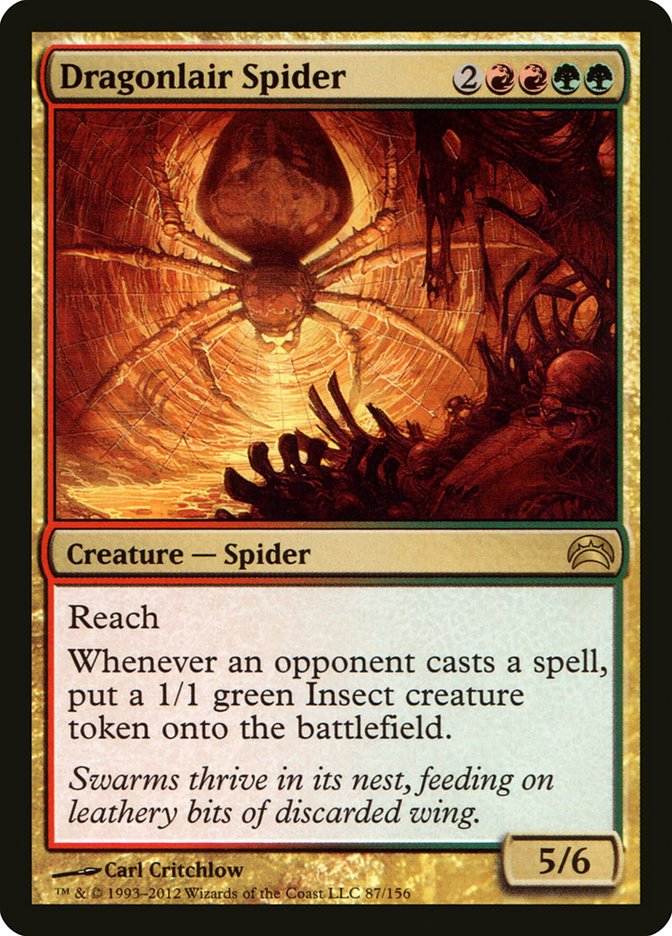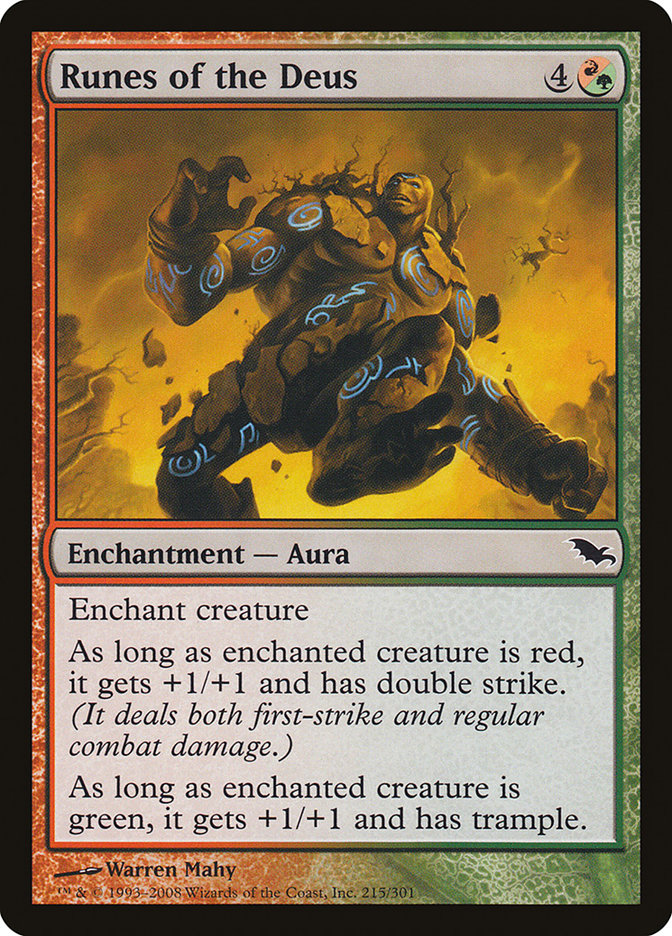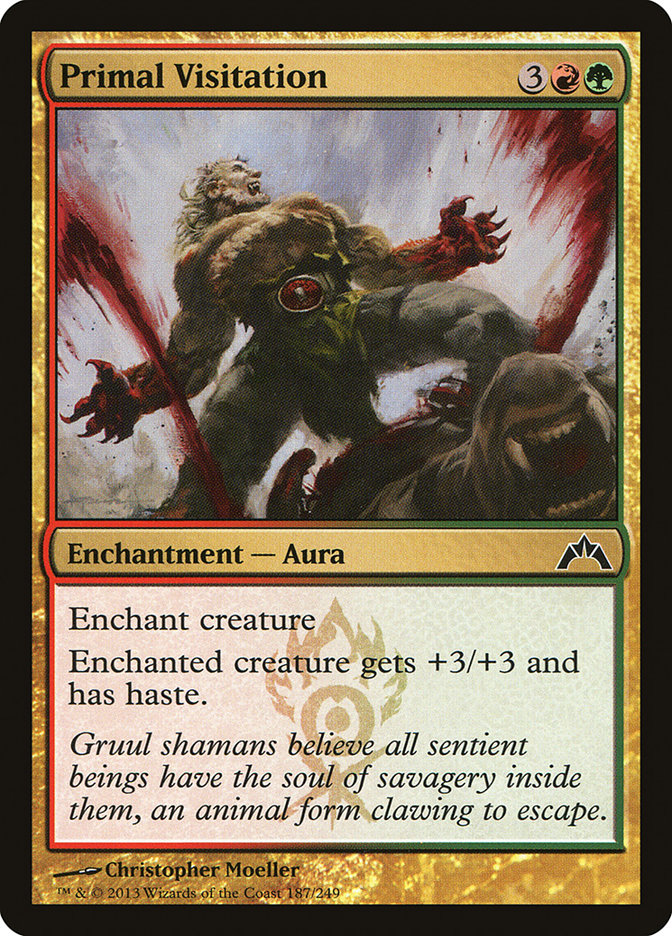Predatory Advantage MTG Card
| Mana cost | |
| Converted mana cost | 5 |
| Rarity | Rare |
| Type | Enchantment |
| Released | 2009-04-30 |
| Set symbol | |
| Set name | Alara Reborn |
| Set code | ARB |
| Number | 58 |
| Frame | 2003 |
| Layout | Normal |
| Border | Black |
| Illustred by | Raymond Swanland |
Text of card
At the end of each opponent's turn, if that player didn't play a creature spell this turn, put a 2/2 green Lizard creature token into play.
Those who forget their past are doomed to be eaten by it.
Cards like Predatory Advantage
Predatory Advantage is a unique MTG card that has certain similarities with other established cards while also offering distinct benefits. Creatures like Hunted Troll provide a quick surge in power, spawning multiple creatures on your side of the table. However, Predatory Advantage has a more continuous effect, granting a creature at each opponent’s end step if they didn’t cast a creature spell. This can steadily tip the scales in a multiplayer format, much like Gahiji, Honored One, which encourages opponents to attack each other while strengthening your board.
Then there’s Thantis, the Warweaver — a card that nudges all players into a more aggressive game by forcing creatures to attack each turn. Predatory Advantage similarly shapes the battlefield but does so passively, reaping a reward turn after turn without forcing the hand of your adversaries. Looking at token generation, cards like Dragonlair Spider create tokens whenever an opponent casts a spell. This contrasts with Predatory Advantage that specifically focuses on the casting of creature spells as the condition for its ability.
Ultimately, Predatory Advantage has a unique position in MTG, particularly in games with multiple opponents. It deters players from casting creature spells and has the potential to generate a significant advantage over time, proving its worth in the right deck configuration and play environment.
Cards similar to Predatory Advantage by color, type and mana cost
Card Pros
Card Advantage: Predatory Advantage offers a dynamic method of gaining card advantage by potentially putting multiple creature cards into play. This aspect is powerful in the late game when hands are often depleted, ensuring that you stay ahead in resources.
Resource Acceleration: With Predatory Advantage, each creature played can translate into tangible on-field presence. This growth in board state equates to resource acceleration, permitting the deployment of threats faster than the pace of a regular land drop per turn.
Instant Speed: The instantaneous nature of Predatory Advantage permits strategic flexibility, allowing players to adapt to the evolving game state. By operating at this speed, players can optimize the timing of their threats and catch opponents off-guard, ensuring maximum impact during game play.
Card Cons
Discard Requirement: Playing Predatory Advantage demands that you discard a creature card to assert dominance on the battlefield. This requirement could set back your hand advantage, particularly during the late game when holding onto key creatures is crucial.
Specific Mana Cost: Predatory Advantage comes with the stipulation of a certain mana configuration, making it a natural fit strictly in decks that can reliably generate both green and black mana. This restrictive cost can impair deck flexibility and hamper the card’s viability in a varied metagame.
Comparatively High Mana Cost: Sitting at a steep five mana to cast, Predatory Advantage competes with other powerful game-changers in the same slot. Given its conditional impact and considerable mana investment, players might find it less appealing than other options that provide immediate and assured value upon hitting the field.
Reasons to Include in Your Collection
Versatility: Predatory Advantage is highly adaptable and can be a strong addition to numerous deck archetypes, particularly those that capitalize on continuous creature advantages.
Combo Potential: This card can synergize with effects that activate whenever you cast a creature spell, or with abilities that trigger when creatures come into play, bolstering your board presence significantly.
Meta-Relevance: Given a meta with decks that frequently pass turns without casting spells, Predatory Advantage provides an ongoing threat that can quickly escalate, making it a compelling choice for proactive strategies.
How to beat
Predatory Advantage is a formidable enchantment that can put MTG players on the defensive. To swing the tides back in your favor against this card, a clear strategy is to limit its effect. Since Predatory Advantage rewards a player at the end of their turn for each land their opponents control more than them, managing land plays is critical. One approach is to play fewer lands, or use land destruction or denial strategies to keep the land count low.
Another tactic is to eliminate the enchantment itself. Green and white decks have multiple enchantment removal options such as Naturalize or Disenchant, which can directly target and destroy Predatory Advantage. For players not running green or white, universal removal like Chaos Warp or multicolored counterspells can offer solutions to neutralize this threat.
Negating the value of the tokens created by Predatory Advantage is also viable. Board wipes, such as Wrath of God or Damnation, can clean the slate. The key is timely removal, either by keeping board presence low or by timing wipes to counteract the growth of token creatures. Implementing these counter-tactics will help reclaim control of the game when facing off against the challenge of Predatory Advantage.
Where to buy
If you're looking to purchase Predatory Advantage MTG card by a specific set like Alara Reborn, there are several reliable options to consider. One of the primary sources is your local game store, where you can often find booster packs, individual cards, and preconstructed decks from current and some past sets. They often offer the added benefit of a community where you can trade with other players.
For a broader inventory, particularly of older sets, online marketplaces like TCGPlayer, Card Kingdom and Card Market offer extensive selections and allow you to search for cards from specific sets. Larger e-commerce platforms like eBay and Amazon also have listings from various sellers, which can be a good place to look for sealed product and rare finds.
Additionally, Magic’s official site often has a store locator and retailer lists for finding Wizards of the Coast licensed products. Remember to check for authenticity and the condition of the cards when purchasing, especially from individual sellers on larger marketplaces.
Below is a list of some store websites where you can buy the Predatory Advantage and other MTG cards:
 BUY NOW
BUY NOW BurnMana is an official partner of TCGPlayer
- eBay
- Card Kingdom
- Card Market
- Star City Games
- CoolStuffInc
- MTG Mint Card
- Hareruya
- Troll and Toad
- ABU Games
- Card Hoarder Magic Online
- MTGO Traders Magic Online
See MTG Products
Legalities
Magic the Gathering formats where Predatory Advantage has restrictions
| Format | Legality |
|---|---|
| Commander | Legal |
| Legacy | Legal |
| Modern | Legal |
| Oathbreaker | Legal |
| Vintage | Legal |
| Duel | Legal |
| Predh | Legal |
| Penny | Legal |
Rules and information
The reference guide for Magic: The Gathering Predatory Advantage card rulings provides official rulings, any errata issued, as well as a record of all the functional modifications that have occurred.
| Date | Text |
|---|---|
| 2009-05-01 | In a Two-Headed Giant game, Predatory Advantage’s ability triggers twice at the end of the opposing team’s turn: once for each player. If neither of those players cast a creature spell that turn, you’ll get two Lizards. If one of those players cast a creature spell but the other didn’t, you’ll get one Lizard. |
| 2009-05-01 | Predatory Advantage checks whether a player cast a creature spell, not whether a creature entered the battlefield under that player’s control. If that player cast a creature spell but you countered it, for example, you won’t get a Lizard token that turn. |
| 2009-05-01 | Predatory Advantage’s ability has an “intervening ‘if’ clause.” That means (1) the ability won’t trigger at all unless the opponent whose turn it is didn’t cast a creature spell that turn, and (2) the ability will do nothing unless the opponent whose turn it is still hasn’t cast a creature spell by the time it resolves. |
